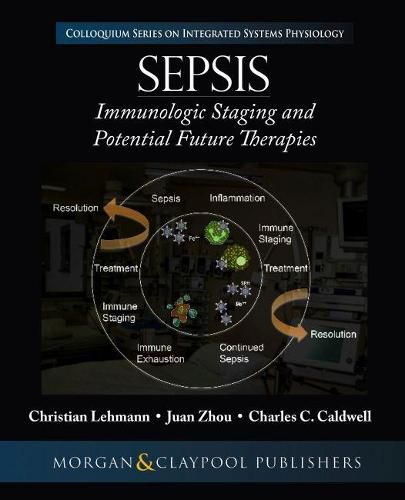Readings Newsletter
Become a Readings Member to make your shopping experience even easier.
Sign in or sign up for free!
You’re not far away from qualifying for FREE standard shipping within Australia
You’ve qualified for FREE standard shipping within Australia
The cart is loading…






Sepsis is a life-threatening organ dysfunction caused by a dysregulated host response to infection. Variability in pathogenesis and complex pathophysiology often delay diagnosis and create significant challenges for clinical studies in this group of critically ill patients. Mainly for those reasons, there is no therapy approved so far to overcome the underlying immune dysregulation. This book provides an overview about the state of the art of sepsis diagnostics and potential future therapies. Chapter 1 focuses on the immunologic staging of sepsis-the key for successful treatment of the dysregulated hot response. Chapter 2 reveals similarities in the immune response in sepsis and cancer-opening new avenues for novel therapies. Chapter 3 introduces an important modulator of the immune response-the endogenous cannabinoid system and elucidates its role in organ dysfunction in sepsis. Facing the increasing bacterial resistance to classical antibiotics, Chapter 4 discusses two unique mechanisms to treat infection and inflammation in sepsis: iron chelation, and the sphingosine pathway. The authors, all experts in experimental and clinical sepsis research, seek to provide further understanding of the complexities of the immune response as the physiological basis for the development of new therapeutics in sepsis.
$9.00 standard shipping within Australia
FREE standard shipping within Australia for orders over $100.00
Express & International shipping calculated at checkout
Sepsis is a life-threatening organ dysfunction caused by a dysregulated host response to infection. Variability in pathogenesis and complex pathophysiology often delay diagnosis and create significant challenges for clinical studies in this group of critically ill patients. Mainly for those reasons, there is no therapy approved so far to overcome the underlying immune dysregulation. This book provides an overview about the state of the art of sepsis diagnostics and potential future therapies. Chapter 1 focuses on the immunologic staging of sepsis-the key for successful treatment of the dysregulated hot response. Chapter 2 reveals similarities in the immune response in sepsis and cancer-opening new avenues for novel therapies. Chapter 3 introduces an important modulator of the immune response-the endogenous cannabinoid system and elucidates its role in organ dysfunction in sepsis. Facing the increasing bacterial resistance to classical antibiotics, Chapter 4 discusses two unique mechanisms to treat infection and inflammation in sepsis: iron chelation, and the sphingosine pathway. The authors, all experts in experimental and clinical sepsis research, seek to provide further understanding of the complexities of the immune response as the physiological basis for the development of new therapeutics in sepsis.